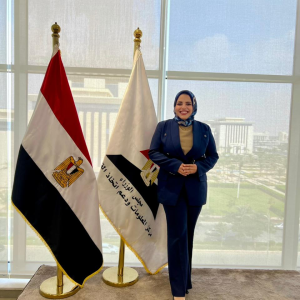The Marine Research Mission UAE is a landmark initiative aimed at exploring and understanding the unique marine ecosystems of the Arabian Gulf. Designed to uncover how these waters respond to environmental stressors and climate change, the mission has become a major milestone in the UAE’s journey toward sustainable marine management. By studying coral reefs, seagrass meadows, and fish populations, researchers are gaining valuable insights into the region’s marine biodiversity and resilience.
This research mission is not only about collecting data but also about fostering collaboration between scientists, students, and local communities. It combines decades of expertise in marine biology and environmental monitoring with advanced technologies to provide a comprehensive view of the Arabian Gulf’s aquatic environment. The mission underscores the importance of protecting marine life, especially as global environmental challenges increase.
Understanding the Gulf’s Unique Marine Ecosystems
The Arabian Gulf presents an extraordinary and challenging environment for marine life. High temperatures, intense salinity, and human activity all contribute to a unique ecological landscape. The Marine Research Mission UAE focuses on understanding how marine species survive and adapt in such extreme conditions.

Coral reefs, often described as the rainforests of the sea, are a critical focus of the mission. Despite being subjected to high water temperatures, some coral species demonstrate remarkable resilience, surviving events that would damage other reefs globally. Studying these resilient corals helps scientists learn more about potential strategies to protect coral systems worldwide.
Seagrass meadows are another vital ecosystem under observation. These underwater plants act as natural carbon sinks, absorbing and storing carbon dioxide from the atmosphere. By understanding the health and distribution of seagrass meadows, the mission provides essential information on how the UAE’s marine ecosystems can help combat climate change.

Fish populations are also carefully monitored. Changes in temperature and salinity influence breeding patterns, migration routes, and population sizes. Observing these shifts enables researchers to anticipate potential ecological challenges and recommend measures to maintain a balanced marine environment.
Collaborative Efforts and Knowledge Exchange
Collaboration is at the heart of the Marine Research Mission UAE. Local scientists, environmental experts, and students are actively involved, creating opportunities for knowledge transfer and skill development. By participating in field research, young scientists gain hands-on experience in modern marine biology techniques, which strengthens local capacity for environmental stewardship.
The mission also encourages the sharing of knowledge on a global scale. By combining local expertise with international insights, researchers can apply lessons learned in the Arabian Gulf to other regions facing similar environmental challenges. This collaborative approach ensures that the findings of the mission have a broader impact, advancing global marine science while addressing local needs.
Technological Innovations Enhancing Marine Research
One of the standout aspects of the Marine Research Mission UAE is its use of advanced technology to study marine ecosystems. Modern tools such as underwater drones, satellite imaging, and genetic analysis allow researchers to gather data that was previously difficult or impossible to obtain.
Autonomous underwater vehicles help survey coral reefs and seagrass meadows without disturbing fragile habitats. High-resolution imaging enables scientists to track changes in marine biodiversity over time, capturing detailed images of coral health, fish populations, and other underwater life. Genetic analysis tools reveal the diversity of species, helping researchers understand how marine organisms adapt to their challenging environment.
These technologies not only make research more efficient but also provide more accurate and actionable data. By combining fieldwork with technological innovation, the mission can monitor environmental changes in real-time and respond quickly to emerging threats.
Key Discoveries from the Marine Research Mission UAE
The mission has already yielded several important discoveries about the Arabian Gulf’s marine ecosystems. While some areas face significant environmental stress, others show impressive resilience.
Coral reefs in the Gulf have shown the ability to recover after periods of heat stress. This resilience suggests that these reefs have adapted to survive extreme conditions and may hold clues for coral conservation worldwide.
Seagrass meadows continue to play a vital role in storing carbon, helping mitigate the effects of climate change. The mission has identified areas where seagrass is thriving and others where it may need protection from human activities.
Research on fish populations indicates that some species are adjusting to changes in temperature and salinity, though vulnerable species require focused conservation efforts. These observations help shape policies for sustainable fishing and marine resource management.
Overall biodiversity in certain regions of the Gulf is higher than expected, highlighting the importance of these areas for long-term ecological health. Protecting these hotspots ensures the continued survival of numerous marine species.

Implications for Environmental Policy
The insights gained from the Marine Research Mission UAE are not only scientific but also have practical implications for environmental policy. Understanding which ecosystems are most vulnerable and which are resilient helps policymakers create targeted strategies for marine conservation.
Protected areas can be established in locations where ecosystems are most at risk, while restoration projects can focus on areas where human activity has caused damage. By integrating scientific data into policy decisions, the UAE can balance economic development with environmental protection.
Furthermore, the mission emphasizes sustainable fishing practices, ensuring that marine resources are used responsibly. Coastal development projects can also benefit from the research, with planning informed by a clear understanding of the ecological impact.
Engaging Communities and Raising Awareness
A critical component of the Marine Research Mission UAE is community engagement. Raising public awareness about marine conservation is essential for long-term success. Educational programs, workshops, and online campaigns inform citizens about the importance of protecting marine ecosystems.
Local schools and universities have participated in hands-on activities, giving students the opportunity to experience marine research firsthand. These programs foster a sense of responsibility toward the environment and inspire the next generation of marine scientists and conservationists.
Public awareness also encourages responsible behavior, such as reducing plastic use, avoiding harmful chemicals, and supporting conservation initiatives. By engaging communities, the mission ensures that conservation efforts are supported not just by scientists and policymakers, but by the people whose actions directly impact the environment.
Preparing for Future Challenges
The Marine Research Mission UAE is forward-looking, preparing for long-term environmental challenges. As climate change continues to affect marine ecosystems, understanding how species respond to rising temperatures, ocean acidification, and other stressors is crucial.
Future plans for the mission include long-term monitoring of marine ecosystems to track environmental changes, expanding research to new regions of the Gulf to understand diverse habitats, developing predictive models to anticipate future ecological impacts, and collaborating with international experts to share knowledge and strategies.
These initiatives aim to strengthen the UAE’s leadership in marine conservation while ensuring that scientific research translates into practical solutions for sustainability.

Aligning with National and Global Sustainability Goals
The Marine Research Mission UAE aligns closely with the UAE’s sustainability vision. Protecting marine ecosystems contributes to global efforts to combat climate change and supports the country’s commitment to sustainable development.
By preserving biodiversity, the mission helps maintain ecological balance, ensuring that marine life continues to thrive. This approach also safeguards the livelihoods of communities that depend on fishing and tourism, balancing economic needs with environmental responsibility.
Moreover, the UAE’s proactive approach sets an example for other nations. By investing in scientific research, technological innovation, and community engagement, the country demonstrates how environmental stewardship can coexist with growth and progress.
The Broader Impact of the Mission
The impact of the Marine Research Mission UAE extends beyond national borders. By studying the Arabian Gulf’s ecosystems, scientists gain insights that can be applied to similar marine environments worldwide. Lessons learned in the Gulf may inform global strategies for coral conservation, carbon sequestration through seagrass, and sustainable fisheries management.
The mission also strengthens international collaboration. Partnerships between local and global experts foster knowledge exchange and create networks that support future research. These collaborations ensure that marine conservation efforts are coordinated, effective, and informed by the latest scientific understanding.
Conclusion
The Marine Research Mission UAE is a pioneering initiative that highlights the importance of understanding and protecting marine ecosystems. By combining scientific research, technological innovation, and community engagement, the mission provides critical insights into the resilience of the Arabian Gulf’s marine life.
Its findings inform environmental policies, guide conservation efforts, and support sustainable development in the UAE. As the mission continues, it promises to expand knowledge, protect biodiversity, and inspire future generations of marine scientists.
Through this mission, the UAE demonstrates leadership in environmental stewardship, showing that proactive research, collaboration, and education can ensure the health of marine ecosystems for years to come. The Arabian Gulf, with its unique biodiversity and resilience, stands as a testament to what can be achieved when science and sustainability work hand in hand.
Do follow UAE Stories on Instagram
Read Next – UAE Marks World Food Day 2025: Leading Global Food Security














